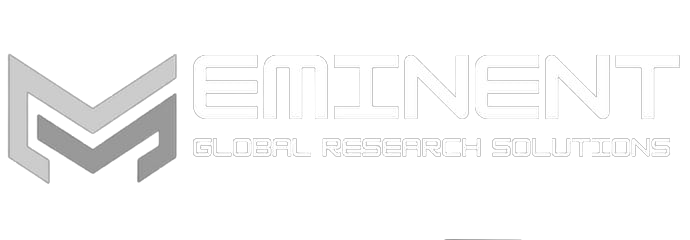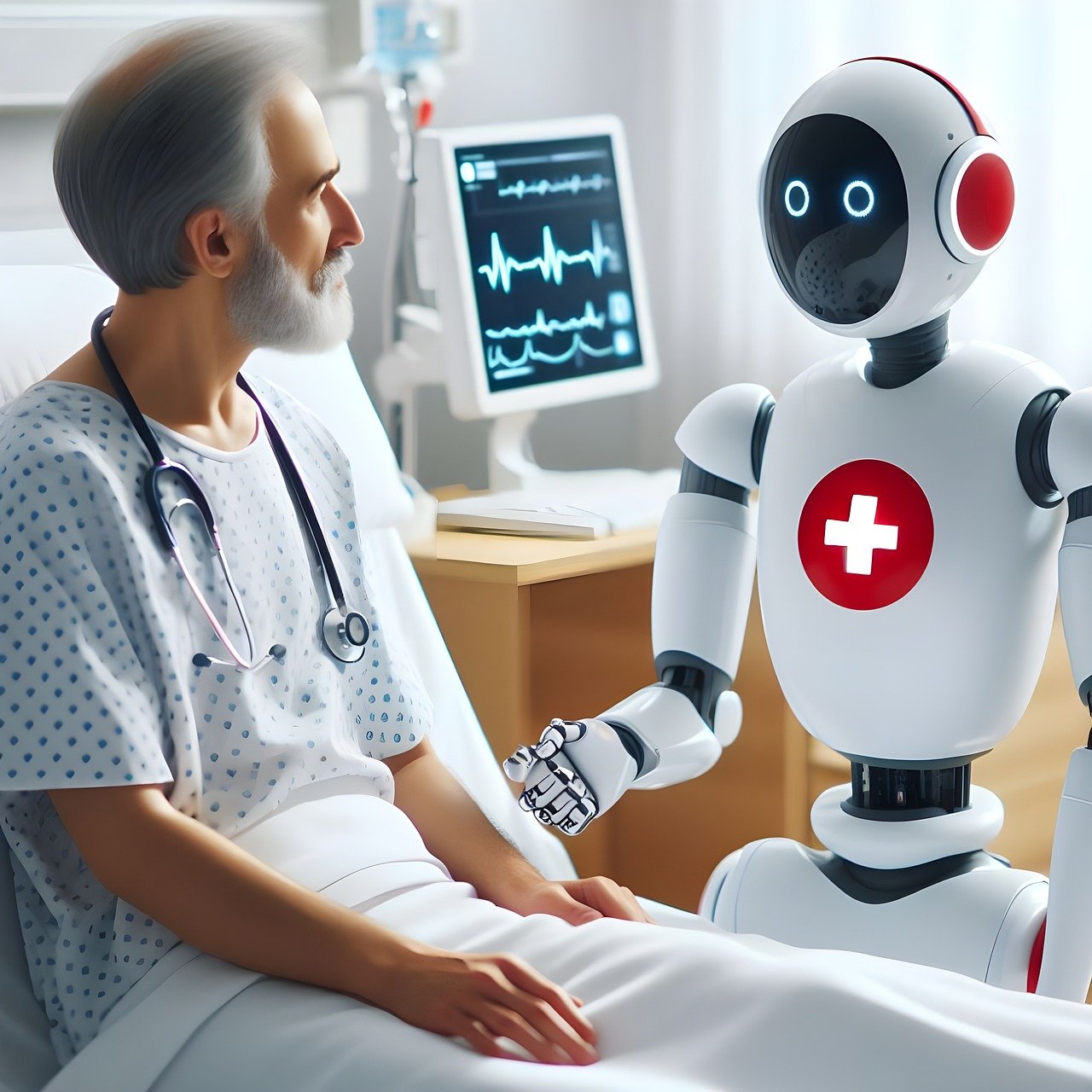Introduction
The future of healthcare holds the promise of groundbreaking advancements, and at the heart of this transformation is artificial intelligence (AI). As we look ahead to 2024, AI is set to revolutionize medicine in ways we never thought possible. From accurate disease diagnosis and personalized treatment plans to more efficient healthcare delivery, AI has the potential to reshape the entire healthcare industry.
Imagine a scenario where AI algorithms can analyze vast amounts of patient data, identify patterns, and detect diseases before symptoms even appear. This predictive power could save countless lives and improve the overall health of populations. Additionally, AI-powered robots and virtual assistants could assist doctors and nurses, easing their workload and ensuring more accurate diagnoses and treatments.
However, while the possibilities seem endless, it’s important to acknowledge the challenges and ethical concerns that come hand in hand with AI in healthcare. As we race toward this future, it is crucial to strike a balance between the capabilities of AI and the human touch in medicine.
In this article, we delve into the potential of AI to revolutionize healthcare by 2024. We explore the current developments, obstacles, and how this technology can enhance patient care while maintaining the essential human connection. Join us as we navigate the exciting intersection of AI and medicine.
Current Applications of AI in Medicine
AI is already making significant strides in the field of medicine, with numerous applications in various areas. One such area is medical imaging, where AI algorithms can analyze medical images such as X-rays, CT scans, and MRIs to detect abnormalities and assist radiologists in making accurate diagnoses. This technology has shown great potential in improving the efficiency and accuracy of diagnosis, leading to better patient outcomes.
Another important application of AI in medicine is in drug discovery and development. AI algorithms can analyze vast amounts of data, including genomic information and drug databases, to identify potential drug candidates and predict their effectiveness. This has the potential to greatly accelerate the discovery and development of new drugs, ultimately benefiting patients by providing more effective treatments for various diseases.
Furthermore, AI is being utilized in the field of genomics, where it can analyze genomic data to identify genetic variations and patterns associated with diseases. This can help in the early detection and prevention of genetic disorders, as well as in developing personalized treatment plans tailored to an individual’s genetic profile.
In addition to these areas, AI is also being used in electronic health records (EHRs) to mine and analyze patient data, improving clinical decision-making and enabling more personalized care. AI-powered chatbots and virtual assistants are also being developed to provide patients with personalized healthcare information and support, enhancing patient engagement and satisfaction.
With these current applications, it’s clear that AI is already making a significant impact in the field of medicine. However, the potential of AI in revolutionizing healthcare goes far beyond these initial developments.
The Potential of AI in Revolutionizing Healthcare
AI has the potential to revolutionize healthcare by transforming the way we diagnose, treat, and manage diseases. One of the most promising areas is AI-powered diagnostics, where algorithms can analyze patient data, including medical images, lab results, and patient history, to detect diseases with a high level of accuracy.
Imagine a future where AI algorithms can analyze a patient’s medical images and detect early signs of cancer or other diseases that may not be visible to the human eye. This early detection could significantly improve patient outcomes by allowing for timely interventions and treatments.
Furthermore, AI algorithms can also analyze patient data to identify patterns and predict disease progression. This predictive power could enable healthcare providers to intervene earlier and prevent the onset of certain diseases, ultimately leading to better population health.
Another area where AI has the potential to revolutionize healthcare is in personalized medicine. By analyzing an individual’s genomic data, AI algorithms can identify genetic variations and predict how a person will respond to certain treatments. This can help healthcare providers develop personalized treatment plans that are tailored to an individual’s genetic profile, leading to more effective and targeted therapies.
Additionally, AI-powered robots and virtual assistants can assist healthcare providers in various tasks, such as patient monitoring, data analysis, and administrative tasks. This can help reduce the workload of healthcare professionals, allowing them to focus more on patient care and spend less time on administrative tasks.
Overall, the potential of AI in revolutionizing healthcare is immense. From accurate disease diagnosis and personalized treatment plans to more efficient healthcare delivery, AI has the power to transform the entire healthcare industry.
AI-Powered Diagnostics and Treatment
One of the most exciting applications of AI in healthcare is AI-powered diagnostics. Traditional diagnostic methods often rely on human interpretation of medical images or lab results, which can be subjective and prone to errors. However, AI algorithms can analyze vast amounts of data and detect patterns that may not be visible to the human eye, leading to more accurate and timely diagnoses.
For example, AI algorithms can analyze medical images such as X-rays, CT scans, and MRIs to detect early signs of diseases like cancer or abnormalities that may be missed by human radiologists. This can help in the early detection and treatment of diseases, improving patient outcomes.
Furthermore, AI algorithms can also analyze patient data, including medical records, lab results, and genetic information, to develop personalized treatment plans. By considering an individual’s unique characteristics and genetic profile, AI can predict how a person will respond to certain treatments and help healthcare providers make more informed decisions.
In addition to diagnostics, AI is also being used to develop innovative treatments and therapies. For example, AI algorithms can analyze vast amounts of scientific literature, clinical trials, and patient data to identify potential drug targets and develop new drugs. This can greatly accelerate the drug discovery and development process, leading to more effective treatments for various diseases.
Moreover, AI-powered robots and virtual assistants are also being utilized in surgical procedures. These robots can assist surgeons by providing real-time feedback, enhancing precision and reducing the risk of human error. This can lead to improved surgical outcomes and faster recovery times for patients.
The potential of AI in diagnostics and treatment is immense, and as we continue to develop and refine these technologies, we can expect to see even greater advancements in patient care.
Enhancing Patient Care through AI
While AI has the potential to revolutionize healthcare, it’s important to remember that the human touch is an essential component of patient care. AI should not replace healthcare professionals but rather enhance their capabilities and support them in providing better care to patients.
One way AI can enhance patient care is by improving the accuracy and efficiency of diagnosis. By analyzing vast amounts of patient data and detecting patterns that may not be visible to the human eye, AI algorithms can assist healthcare providers in making more accurate diagnoses. This can lead to earlier interventions and treatments, ultimately improving patient outcomes.
Additionally, AI-powered chatbots and virtual assistants can provide patients with personalized healthcare information and support. These virtual assistants can answer basic healthcare questions, provide reminders for medication, and offer emotional support to patients. This can improve patient engagement and satisfaction, as patients can receive timely and personalized care even outside of healthcare settings.
Furthermore, AI can also help in improving the delivery of healthcare services. By analyzing patient data and predicting disease progression, AI algorithms can help healthcare providers allocate resources more efficiently and develop preventive strategies. This can lead to better population health and more efficient healthcare systems.
However, it’s important to strike a balance between the capabilities of AI and the human touch in medicine. While AI can provide valuable insights and support, it cannot replace the empathy, compassion, and critical thinking skills of healthcare professionals. The human connection is essential in patient care, and AI should be seen as a tool to enhance, rather than replace, the human element.
Ethical Considerations of AI in Healthcare
As we embrace the potential of AI in healthcare, it’s important to address the ethical considerations that come hand in hand with this technology. AI has the power to greatly impact patient care and healthcare systems, but it also raises concerns about privacy, bias, and the potential for misuse.
One of the main ethical concerns is the protection of patient privacy. AI algorithms require vast amounts of patient data to train and function effectively. It’s crucial to ensure that this data is handled securely and in accordance with privacy regulations. Additionally, patients should have control over their data and be aware of how it is being used.
Another ethical consideration is the potential for bias in AI algorithms. AI algorithms learn from existing data, and if the data used to train these algorithms is biased or incomplete, it can lead to biased outcomes. This can have serious implications in healthcare, as biased algorithms may disproportionately impact certain populations or lead to incorrect diagnoses or treatments. It’s essential to address this bias and ensure that AI algorithms are fair and equitable.
Furthermore, the potential for misuse of AI in healthcare raises ethical concerns. For example, AI algorithms could be used to discriminate against certain individuals or deny them access to healthcare services based on their health data. It’s important to establish clear guidelines and regulations to prevent such misuse and ensure that AI is used for the benefit of all patients.
Addressing these ethical considerations is crucial in order to build trust in AI technologies and ensure that they are used responsibly and ethically in healthcare.
Challenges and Barriers to Implementing AI in Medicine
While the potential of AI in healthcare is immense, there are several challenges and barriers that need to be overcome for widespread implementation.
One of the main challenges is the availability and quality of data. AI algorithms require large amounts of high-quality data to train and function effectively. However, healthcare data is often fragmented, stored in different formats, and subject to privacy regulations. Integrating and standardizing this data can be a complex and time-consuming process. Additionally, there may be limitations in data access and sharing due to privacy concerns, making it difficult to train AI algorithms on diverse and representative datasets.
Another challenge is the need for regulatory frameworks and guidelines. As AI becomes more prevalent in healthcare, it’s important to establish clear regulations and guidelines to ensure patient safety, privacy, and ethical use of AI technologies. This requires collaboration between healthcare providers, policymakers, and technology developers to develop and implement these frameworks.
Furthermore, there is a need for education and training of healthcare professionals to effectively utilize AI technologies. Healthcare providers need to understand how AI works, its limitations, and its potential benefits in order to integrate it into their practice. This requires ongoing education and training programs to keep healthcare professionals up to date with the latest advancements in AI.
Lastly, the cost of implementing AI technologies can be a barrier for many healthcare organizations. AI technologies often require significant investments in infrastructure, software, and training. Healthcare organizations need to evaluate the cost-effectiveness of these technologies and develop sustainable business models to ensure their widespread adoption.
Addressing these challenges and barriers is essential to fully unlock the potential of AI in healthcare and ensure that it benefits all patients.
The Role of Healthcare Professionals in an AI-Driven Future
As AI technologies continue to advance and become more prevalent in healthcare, the role of healthcare professionals will evolve. While AI has the potential to automate certain tasks and improve efficiency, healthcare professionals will continue to play a crucial role in patient care.
One of the main roles of healthcare professionals in an AI-driven future is the interpretation and validation of AI-generated insights. While AI algorithms can analyze vast amounts of data and provide valuable insights, it’s important for healthcare professionals to critically evaluate these insights and make informed decisions based on their clinical judgment and expertise. This human oversight is essential to ensure accurate diagnoses and appropriate treatments.
Furthermore, healthcare professionals will continue to provide the human touch and emotional support that AI cannot replicate. The empathy, compassion, and communication skills of healthcare professionals are crucial in patient care, and these qualities cannot be replaced by AI. Healthcare professionals will continue to build trusting relationships with their patients, provide emotional support, and navigate complex ethical and social issues that arise in healthcare.
Additionally, healthcare professionals will also play a role in shaping the future of AI in healthcare. They can provide valuable input and feedback to technology developers, ensuring that AI technologies are designed to meet the needs of healthcare providers and patients. Healthcare professionals can also advocate for transparent and ethical use of AI in healthcare, helping to address concerns about privacy, bias, and the potential for misuse.
Overall, while AI will undoubtedly have a significant impact on healthcare, healthcare professionals will continue to be at the center of patient care, providing the human touch and expertise that is essential in medicine.
AI Startups and Innovations in Healthcare
The potential of AI in healthcare has attracted a growing number of startups and innovators who are developing cutting-edge technologies to revolutionize patient care. These startups are leveraging AI algorithms and machine learning techniques to address various challenges in healthcare and improve patient outcomes.
One area where AI startups are making significant advancements is in medical imaging. These startups are developing AI algorithms that can analyze medical images and detect abnormalities with a high level of accuracy. By providing radiologists with AI-powered tools, these startups are improving the efficiency and accuracy of diagnosis, leading to better patient outcomes.
Another area of innovation is in the development of AI-powered chatbots and virtual assistants. These startups are developing virtual assistants that can provide patients with personalized healthcare information, answer basic healthcare questions, and offer emotional support. By leveraging natural language processing and machine learning techniques, these virtual assistants are improving patient engagement and satisfaction.
Furthermore, AI startups are also focusing on developing innovative therapies and treatments. For example, some startups are using AI algorithms to analyze genomic data and identify potential drug targets. By leveraging AI algorithms, these startups are accelerating the drug discovery and development process, leading to more effective treatments for various diseases.
These AI startups and innovators are driving the transformation of healthcare by developing technologies that have the potential to improve patient care and outcomes. As they continue to refine and expand their technologies, we can expect to see even greater advancements in the field of AI in healthcare.
Conclusion: Embracing the Future of Healthcare with AI
In conclusion, the future of healthcare holds immense promise, and at the heart of this transformation is artificial intelligence. By 2024, AI is set to revolutionize medicine in ways we never thought possible. From accurate disease diagnosis and personalized treatment plans to more efficient healthcare delivery, AI has the potential to reshape the entire healthcare industry.
While the possibilities seem endless, it’s important to acknowledge the challenges and ethical concerns that come hand in hand with AI in healthcare. Striking a balance between the capabilities of AI and the human touch in medicine is crucial to ensure that patient care remains at the center of healthcare.
As we navigate the exciting intersection of AI and medicine, it’s important to remember that AI is a tool to enhance, not replace, the expertise and compassion of healthcare professionals. By leveraging AI technologies responsibly and ethically, we can embrace the future of healthcare and improve patient outcomes for all.




